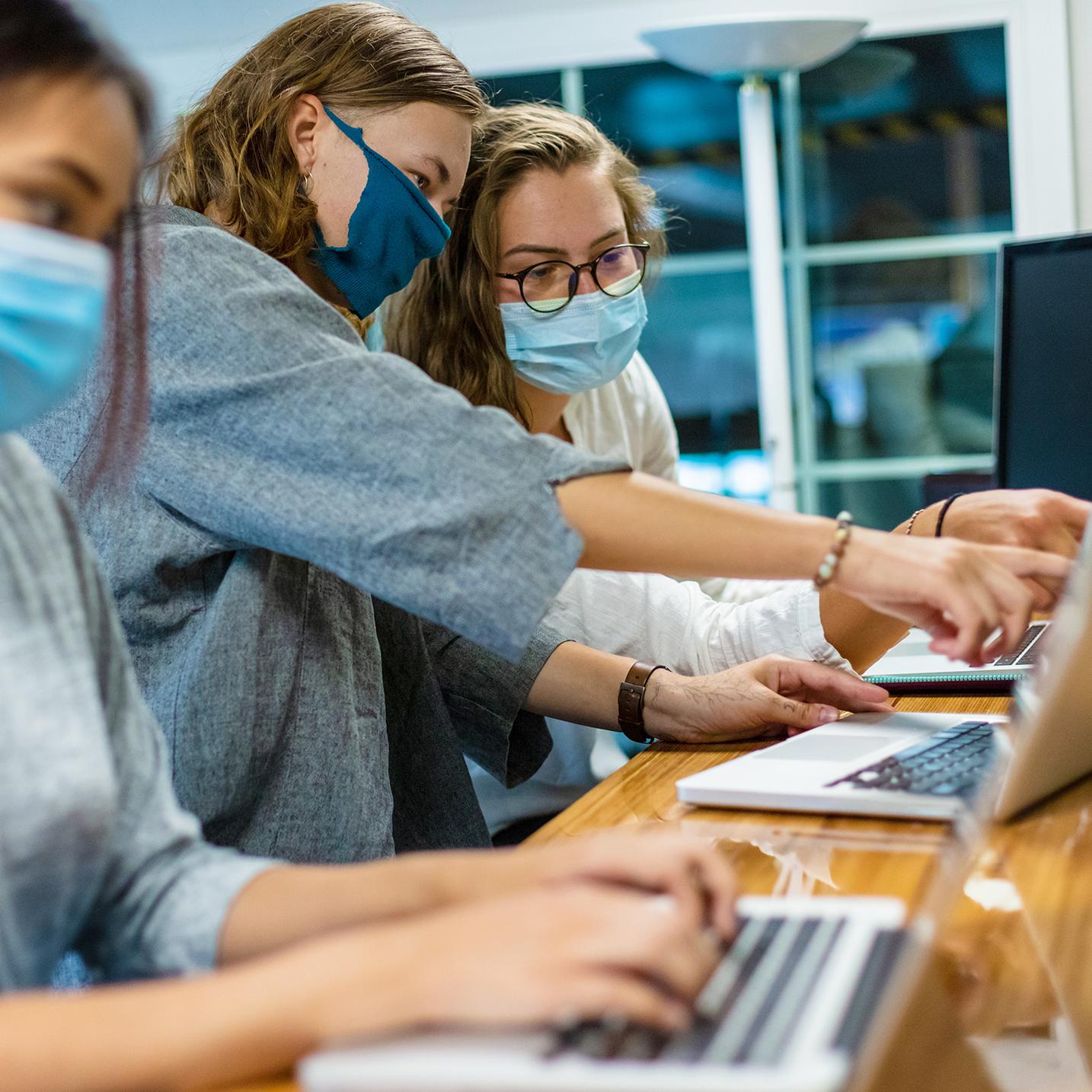
News
A Night of Career-Training Role Play
Professionals from College Board and other corporations partner with the nonprofit Braven to prepare college students to land strong jobs after graduation
Beaming, anxious faces popped into my Zoom feed, one after another, for more than three hours. They were first-generation students, low-income students, or students of color from the Braven Accelerator Course at Lehman College, in the Bronx, here to practice interviewing for a job. They carried big dreams—of becoming nurses, teachers, environmental scientists—and very different life stories—a single mom, a caretaker for ailing parents, a full-time student holding down multiple jobs to pay tuition.
But they all had something in common: the hope of a strong start to their careers after graduation. The odds, though, are not in their favor. Before the pandemic, only 30% of underrepresented college students landed a solid first job or enrolled in graduate school.
That’s where Braven comes in. Launched in 2014 as a boot camp at San José State University, the nonprofit has grown into a national program to transition promising, underrepresented students from college to strong first jobs. (Braven defines “strong first job” as one that requires a bachelor’s degree, is full-time, and includes some combination of competitive starting salary, benefits, and advancement opportunities or entry into grad school.)
The organization’s model centers around the Braven Accelerator Course, which provides coaching and guidance through online content to prepare them to enter the workforce. After it ends, enrolled students are provided with one-on-one mentoring, access to a jobs board, and career preparation. Braven’s higher education program began with 17 students at one Bay Area school; it now boasts 4,500 Fellows from colleges and universities in New York, Newark, Atlanta, and Chicago, as well as San José.
It’s a model that works. In 2021, 680 Braven Fellows graduated from college and 61% landed a strong job or entered graduate school, outpacing their peers by 16 percentage points within six months of graduation. Giving Fellows real-world job search experience through mock interviews with professionals and mentors has been a key factor in that success.
“Many Fellows tell me it is the best night of the semester,” said Kilsys Payamps-Roure, Braven’s New York City executive director, “and that they feel more ready than ever for the job market.”

Braven
Along with 18 of my College Board colleagues, I saw the benefits of Braven’s program when we filled the role of potential employer to help students build the confidence to secure strong jobs after graduation. The session, which took place March 23, was hosted by College Board Cares, a philanthropic initiative that began in 2017 to connect College Board to nonprofit partners like Braven who share a mission of improving the lives of young people.
College Board volunteers were joined by dozens of others from Credit Suisse, LinkedIn, UBS, and other corporate and nonprofit partners who conducted three separate virtual, practice interviews with Braven Fellows. We reviewed resumes, conducted mock interviews, and gave feedback on their “glows” and “grows” (Braven speak for strengths and areas for improvement) during the Zoom sessions and through written evaluations.
“It was an excellent opportunity to face my fears, improve, and understand the things I need to improve to become a solid and confident candidate,” one Fellow said after the event.
It may have all been practice, but what the students had experienced mirrored the real process of a job interview. Fellows were nervous, and sometimes a question caught them off guard and unprepared. (We interviewers were urged to get the Fellows to think on their feet.) And real life sometimes intervened—who hasn’t had their child or pet pop into their camera shot at some ill-timed moment during the last two years? But they were deeply passionate about their chosen fields, ready to take in the feedback, and committed to getting better.
“My biggest takeaway was that the young people I met with felt like they were the only students who were nervous about interviewing, talking about their skills and qualifications, or needing time to think through their answers,” said Allison Danielsen, executive director of BigFuture Careers and Partnerships at College Board. “Normalizing the stress of this process feels like an opportunity we could address at the College Board, given our reach.”
Even the event itself demonstrated how Braven works to improve access. By leveraging powerful virtual tools that became ubiquitous during the pandemic, the organization connects students with professionals they wouldn’t otherwise be able to meet.
That kind of digital extension resonated with professionals in the session whose work is focused on how to offer college and professional opportunities to as many people as possible.
“I am thinking a lot about how we convene students and caring adults through virtual events for conversations that would be impossible or very challenging to implement at scale in person,” said Richard Green, a senior director for BigFuture Student Engagement at College Board.With the night ending, us professionals wanted to make sure our interviewees left with one final piece of advice.
As first-gen students, students of color, and students juggling multiple responsibilities, they have proven their ability to not only manage challenges but overcome them and reach their goals. Their skills and talent will get them into the interview, but it’s their life stories that will make them rise above.
Visit Become an Employer Partner for more information on how to participate in similar mock interview sessions and other volunteer opportunities with Braven.


